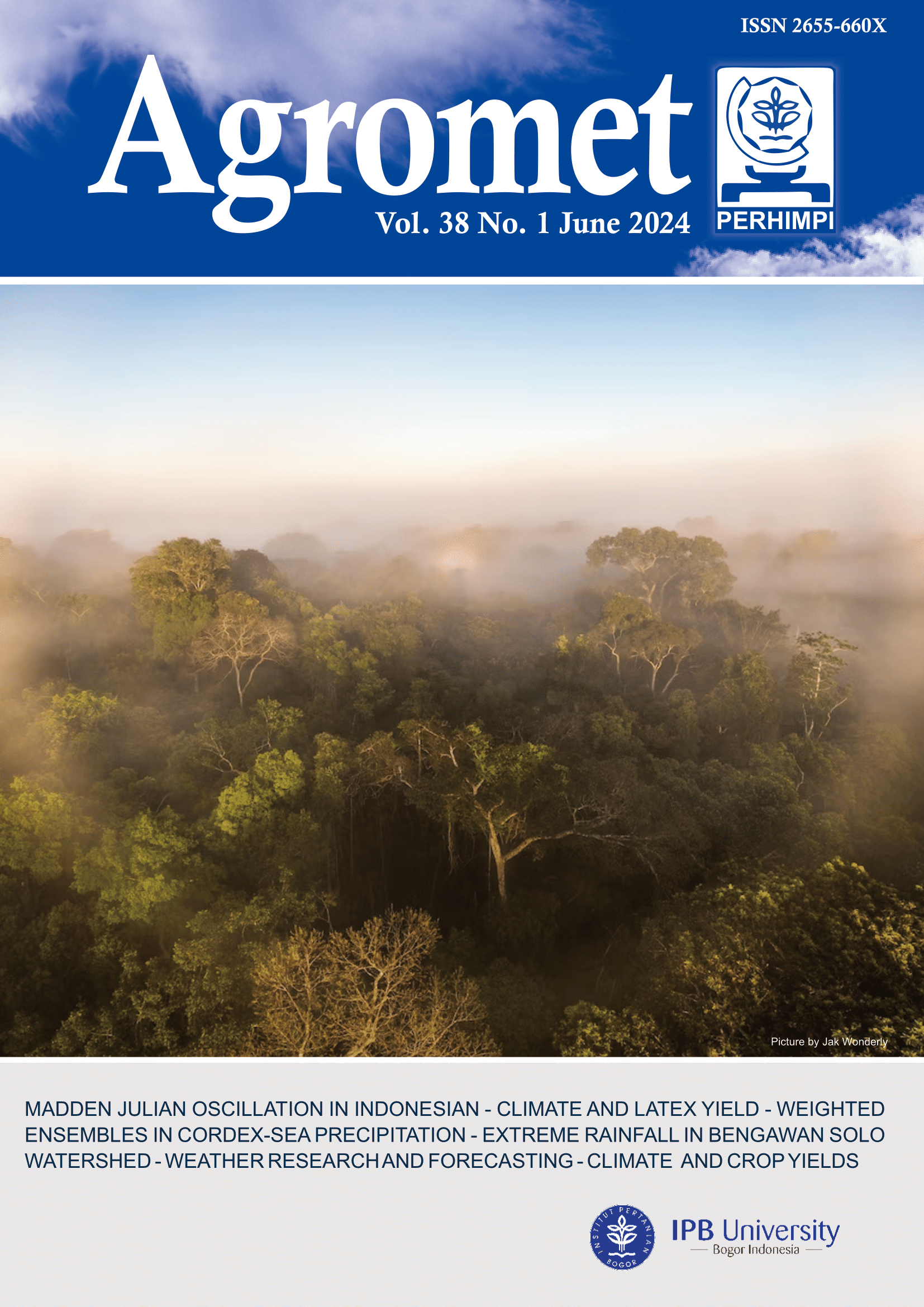Propagation Characteristics of Madden Julian Oscillation in the Indonesian Maritime Continent: Case Studies for 2020-2022
Abstract
Madden-Julian Oscillation (MJO) can affect weather and climate variability in the Indonesian Maritime Continent. MJO propagation is not always the same, previous research has classified MJO into 4 categories: slow, fast, stand, and jump. The objective of this study is to investigate the differences in MJO propagation and the factors that impact it. Daily data for variables such as Outgoing Longwave Radiation (OLR), zonal wind, and sea surface temperature are utilized in this research. The collected data is processed using composite methods based on the 8 MJO phases, with a specific focus on the years 2020, 2021, and 2022. The research findings suggest that warm sea surface temperatures in the Pacific Ocean and zonal winds dominated by Kelvin waves are favorable for MJO propagation. Conversely, cooling sea surface temperatures in the Pacific Ocean and zonal winds dominated by equatorial Rossby waves can hinder MJO propagation. Future researchers are expected to examine the impact of MJO propagation during extreme rainfall occurrences in several regions of Indonesia, as well as the application of machine learning and deep learning methods to predict MJO propagation in the future.
Authors

This work is licensed under a Creative Commons Attribution-NonCommercial 4.0 International License.

